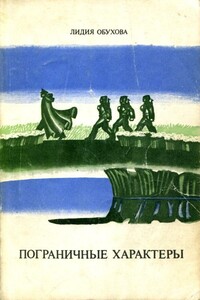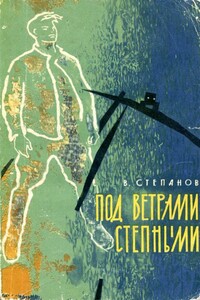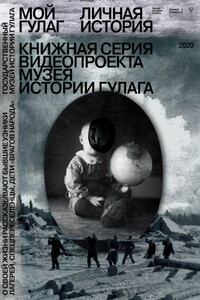The Boy Scouts In Russia - [21]
He waited breathlessly. Then two short pulls signalled that Boris had read his note and would follow his instructions. He gave three sharp tugs, and then settled down to wait, with beating heart, for now the crucial test was coming. The other sentry was about to appear. If he noticed the thin string, by any chance, the whole scheme would be spoiled and Fred, in all probability, would be caught and treated as a spy.
The man came around the corner of the house, walking slowly, his head down. As he neared the twine he stopped for just a moment and looked up. Fred scarcely dared to breathe. He knew what had happened. The twine had brushed against the sentry's cheek. But then a puff of wind carried it away, and the man went on, brushing at his cheek, thinking, perhaps, a moth had touched it.
One sharp tug of the twine. That was the signal to Boris to go ahead. His eyes strained on the window, Fred saw his cousin's figure appear on the sill, saw him climbing swiftly up a water pipe, and then saw him drop to the flat roof, hidden for the moment by a low parapet. Then there was another period of agonized waiting, for again a sentry was to pass. Fred used the brief interval of enforced inaction to loosen the rope and place it on the ground, tied to the loose end of the twine he took from his wrist, so that it would have a clear passage through the bushes. Then the coast was clear again, and he signalled to Boris to draw it up. Up, up went the twine; then the rope started. And at last it dangled against the side of the house. Fred, knowing it was there, could scarcely see it himself. He decided that the sentries would never notice it.
Then came the last pause. And when the sentry had passed the rope, Boris slipped over the parapet and started his descent. He had to come quickly for he had less than two minutes to reach the ground and join Fred in his shelter. Down he came, hand over hand, so fast at the end, when he just slid, letting the rope slip through his fingers, that he must have burned the skin from his palms. But he made it, and came running toward Fred. He was crouched low against the ground. But, just before he reached the bushes there was a shout from above, a flash, a loud report. A bullet sang over Fred's head, and the next moment the garden was alive with rushing, shouting men, ablaze with flashing points of electric light. They tried to hide in the shrubbery. But in vain. At this last moment, when Fred's plan had seemed sure of success, disaster had come-for some German officer, going on the roof, had been just in time to see the rope and spoil everything with his chance shot! CHAPTER X
Both Fred and Boris recognized at once the hopelessness of flight. Both thought instinctively of the hollow and the concealed entrance to the tunnel, and both knew that to attempt to use that now would not save them, and would give away a secret that might be supremely important at some future time, either to them or to someone else among those who shared the precious secret. The grounds were flashing with light in all directions; soldiers called to one another; men ran all around, looking for them.
And yet, hopelessly caught as they were, neither could give up supinely. Both had the dauntless fighting spirit that must be conquered, that will never give up, not only while hope remains, but while disaster, be it ever so certain, has not actually come to pass. They were in a sort of thicket, almost as thick as a primeval jungle. At the same moment the thought seemed to come to each of them that the one chance for momentary safety lay in keeping perfectly still. They were side by side, wedged in a little opening they had made for themselves, and now they went down together.
All about them the din of the pursuit continued. Officers were pouring out of the house to join the hunt. Shouts and cries resounded. Fred had to smile to himself. It seemed to him that the boasted system and order of the German army could not be what he had always heard about it if the escape of two boys could produce such a disorganization.
And then there was a sudden diversion. The noise seemed to die away. It did not cease for there was still a good deal of talking, but there was no more shouting, until there was a sudden whirring sound.
"An aeroplane!" whispered Boris. "I've seen them for the last few days, flying in all directions. They use them for scouting."
"I knew I ought to recognize that sound!" said Fred.
It seemed fairly safe for them to speak to one another now. For some reason it was quite evident they had been forgotten.
There was an interval of almost complete silence; then came a sudden explosion of orders. Half a dozen motorcycles sprang into crackling life; there was the unmistakable din of a powerful aeroplane engine, which, with no muffler, is noisy enough to wake the dead. Then came the whirring of its propeller. They were sure that if they only dared to raise their heads, they would see the machine rising near by.
But there was more to follow that was just as inexplicable. The motorcycles chugged away; then three automobiles started. Their engines roared for a moment before they subsided to the ordered, steady hum of a smooth running motor. On the first car that got away there was a horn that made Boris start convulsively as he heard its bugle note, and grasp Fred's shoulder.

В настоящем издании впервые полностью публикуются воспоминания барона Андрея Ивановича Дельвига (1813–1887), инженер-генерала, технического руководителя и организатора строительства многих крупных инженерных сооружений на территории Российской империи. Его воспоминания – это обстоятельный и непредвзятый рассказ о жизни русского общества, в основном столичного и провинциального служилого дворянства, в 1810–1870-х годах. Отечественная война, Заграничный поход, декабрьское восстание 1825 года вошли в жизнь А.

Документальные повести Л. Обуховой многоплановы: это и взволнованный рассказ о героизме советских пограничников, принявших на себя удар гитлеровцев в первый день войны на берегах Западного Буга, реки Прут, и авторские раздумья о природе самого подвига. С особой любовью и теплотой рассказано о молодых воинах границы, кому в наши дни выпала высокая честь стоять на страже рубежей своей Отчизны. Книга рассчитана на широкий круг читателей.

В книге рассказывается история главного героя, который сталкивается с различными проблемами и препятствиями на протяжении всего своего путешествия. По пути он встречает множество второстепенных персонажей, которые играют важные роли в истории. Благодаря опыту главного героя книга исследует такие темы, как любовь, потеря, надежда и стойкость. По мере того, как главный герой преодолевает свои трудности, он усваивает ценные уроки жизни и растет как личность.

В книге рассказывается история главного героя, который сталкивается с различными проблемами и препятствиями на протяжении всего своего путешествия. По пути он встречает множество второстепенных персонажей, которые играют важные роли в истории. Благодаря опыту главного героя книга исследует такие темы, как любовь, потеря, надежда и стойкость. По мере того, как главный герой преодолевает свои трудности, он усваивает ценные уроки жизни и растет как личность.

В книге рассказывается история главного героя, который сталкивается с различными проблемами и препятствиями на протяжении всего своего путешествия. По пути он встречает множество второстепенных персонажей, которые играют важные роли в истории. Благодаря опыту главного героя книга исследует такие темы, как любовь, потеря, надежда и стойкость. По мере того, как главный герой преодолевает свои трудности, он усваивает ценные уроки жизни и растет как личность.

«Мой ГУЛАГ» — это книжная серия видеопроекта Музея истории ГУЛАГа. В первую книгу вошли живые свидетельства переживших систему ГУЛАГа и массовые репрессии. Это воспоминания бывших узников советских лагерей (каторжан, узников исправительно-трудовых и особых лагерей), представителей депортированных народов, тех, кто родился в лагере и первые годы жизни провел в детском бараке или после ареста родителей был отправлен в детские дома «особого режима» и всю жизнь прожил с клеймом сына или дочери «врага народа». Видеопроект существует в музее с 2013 года.